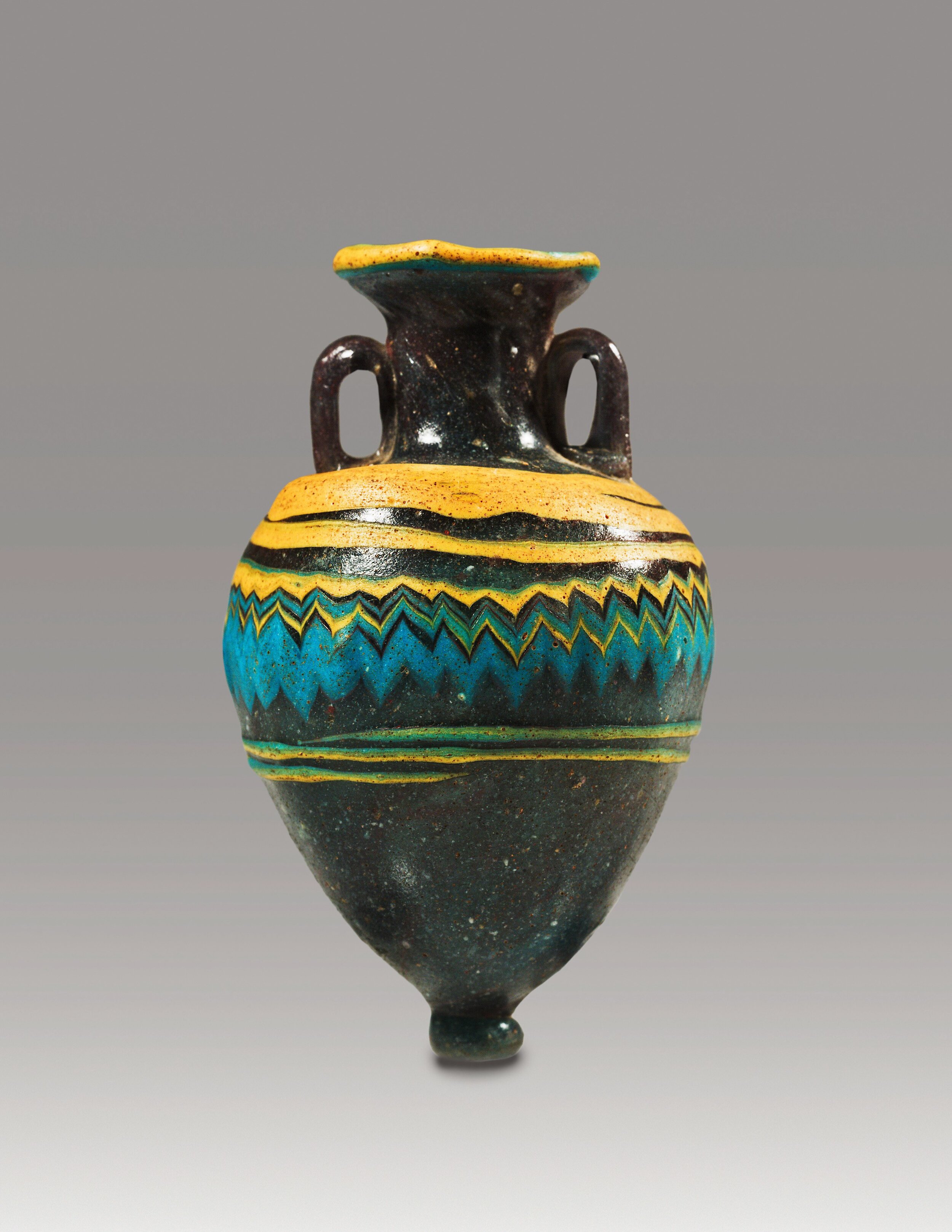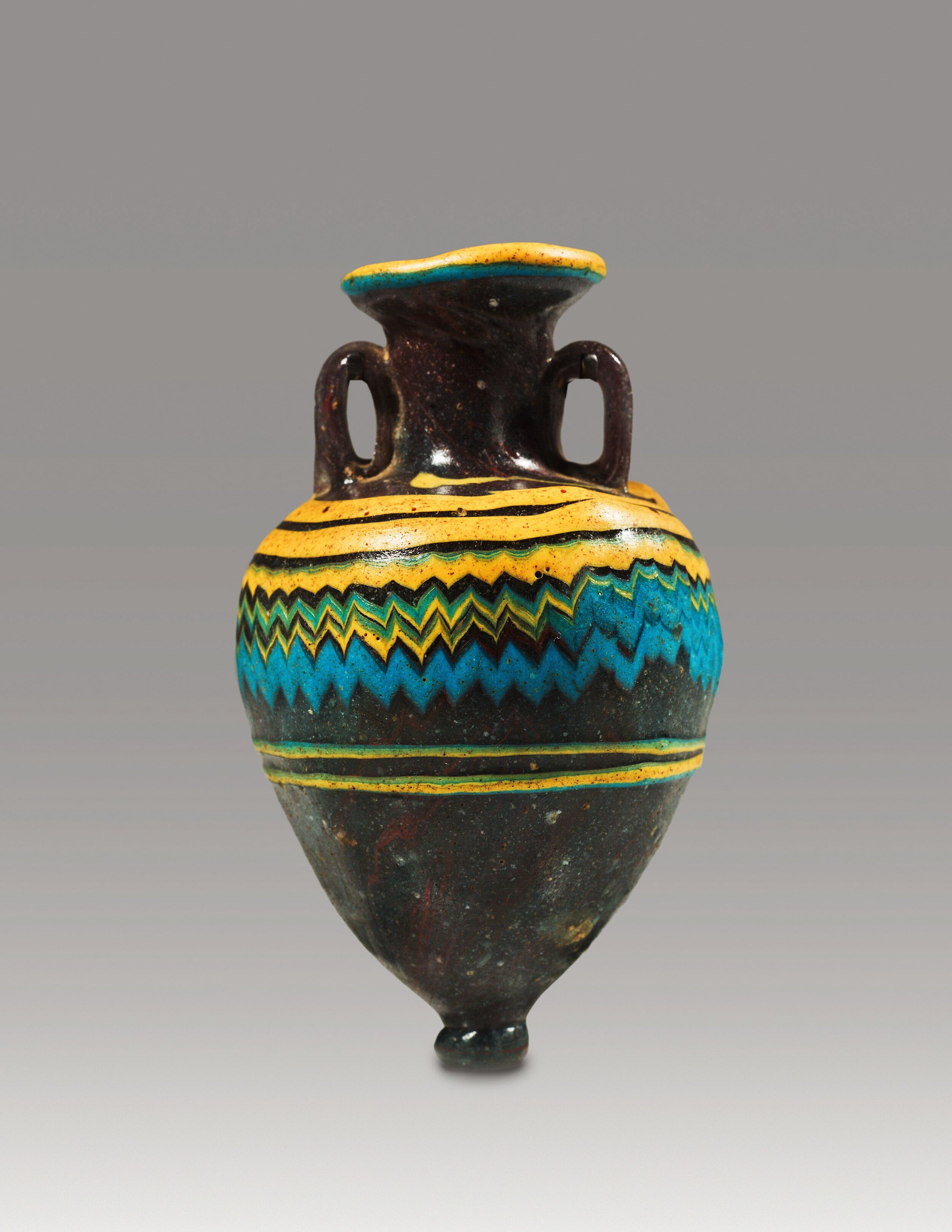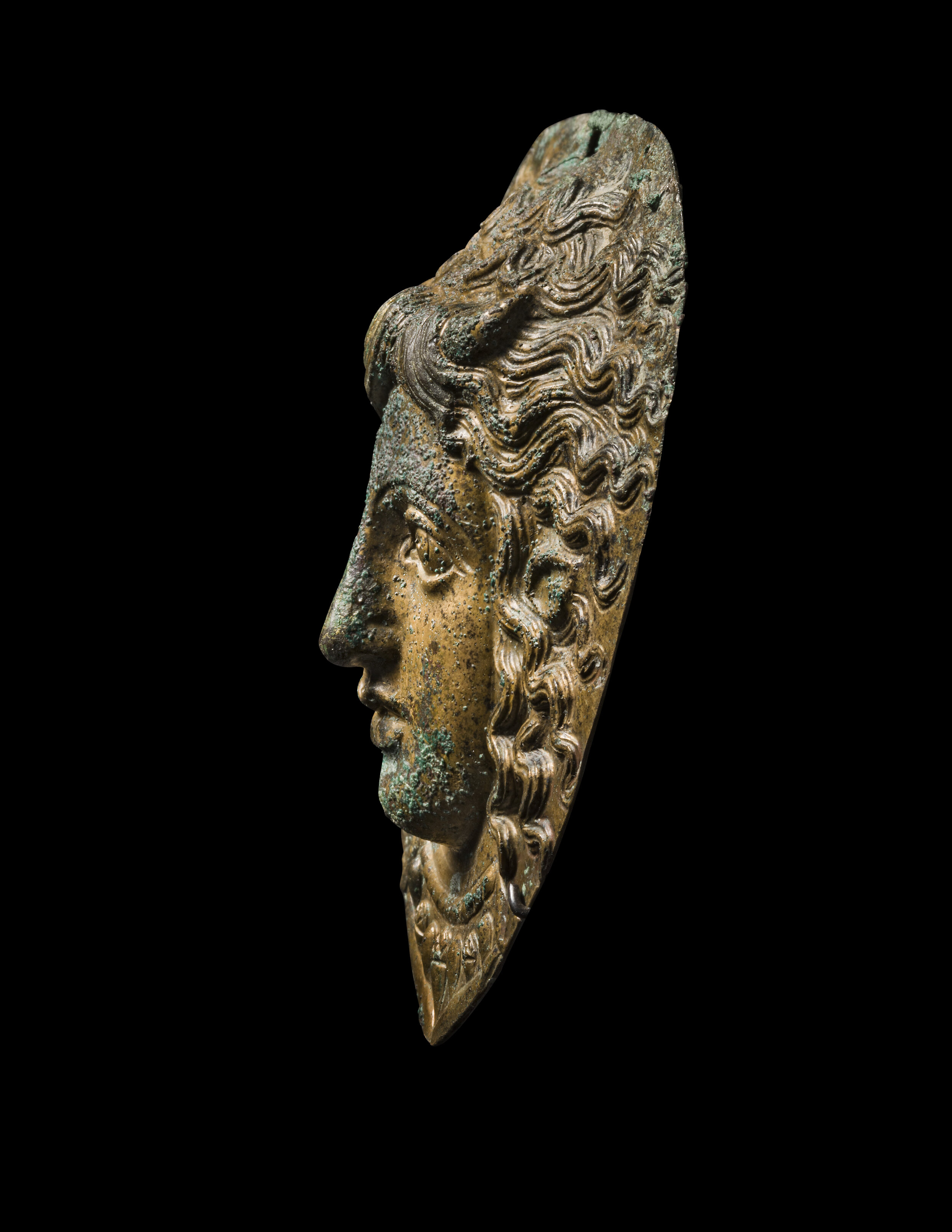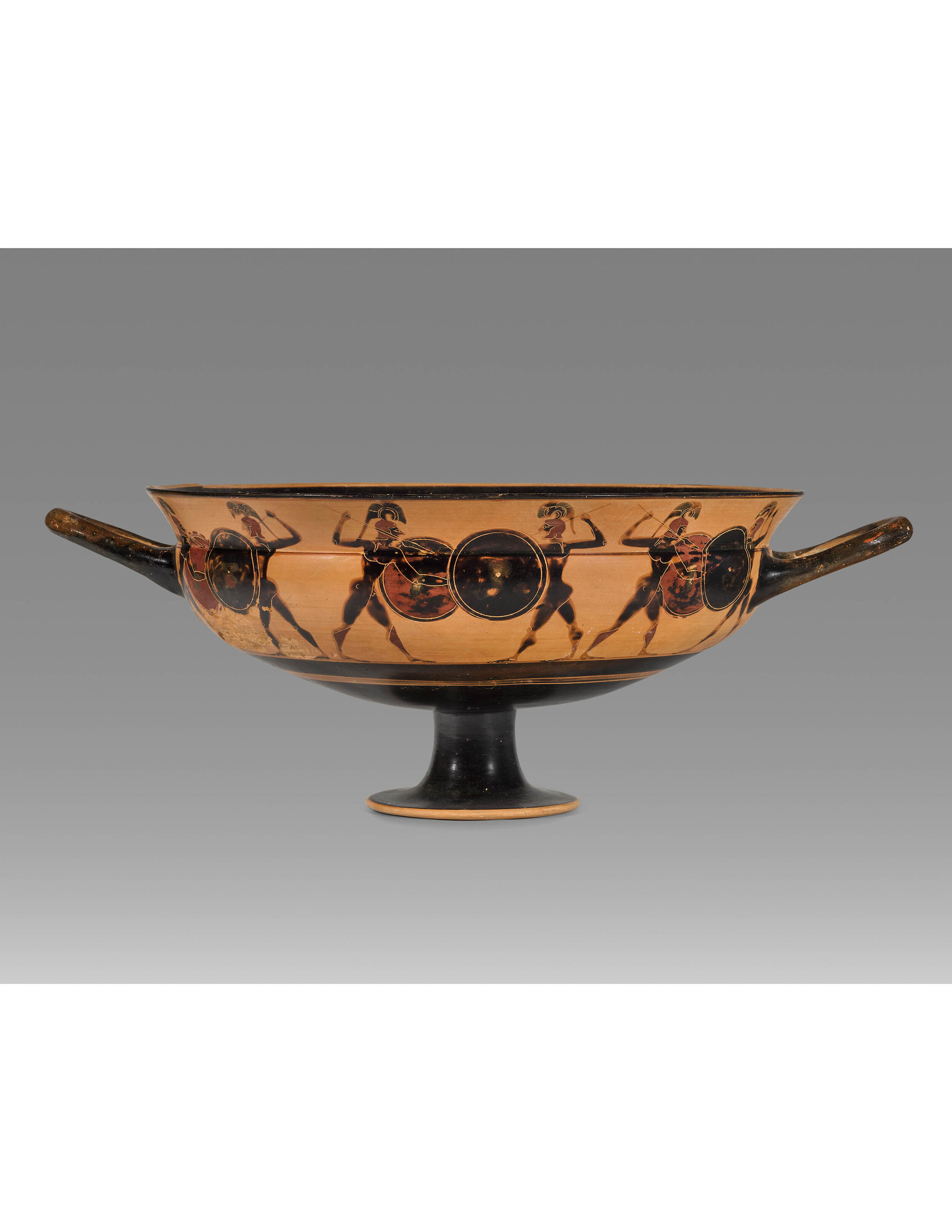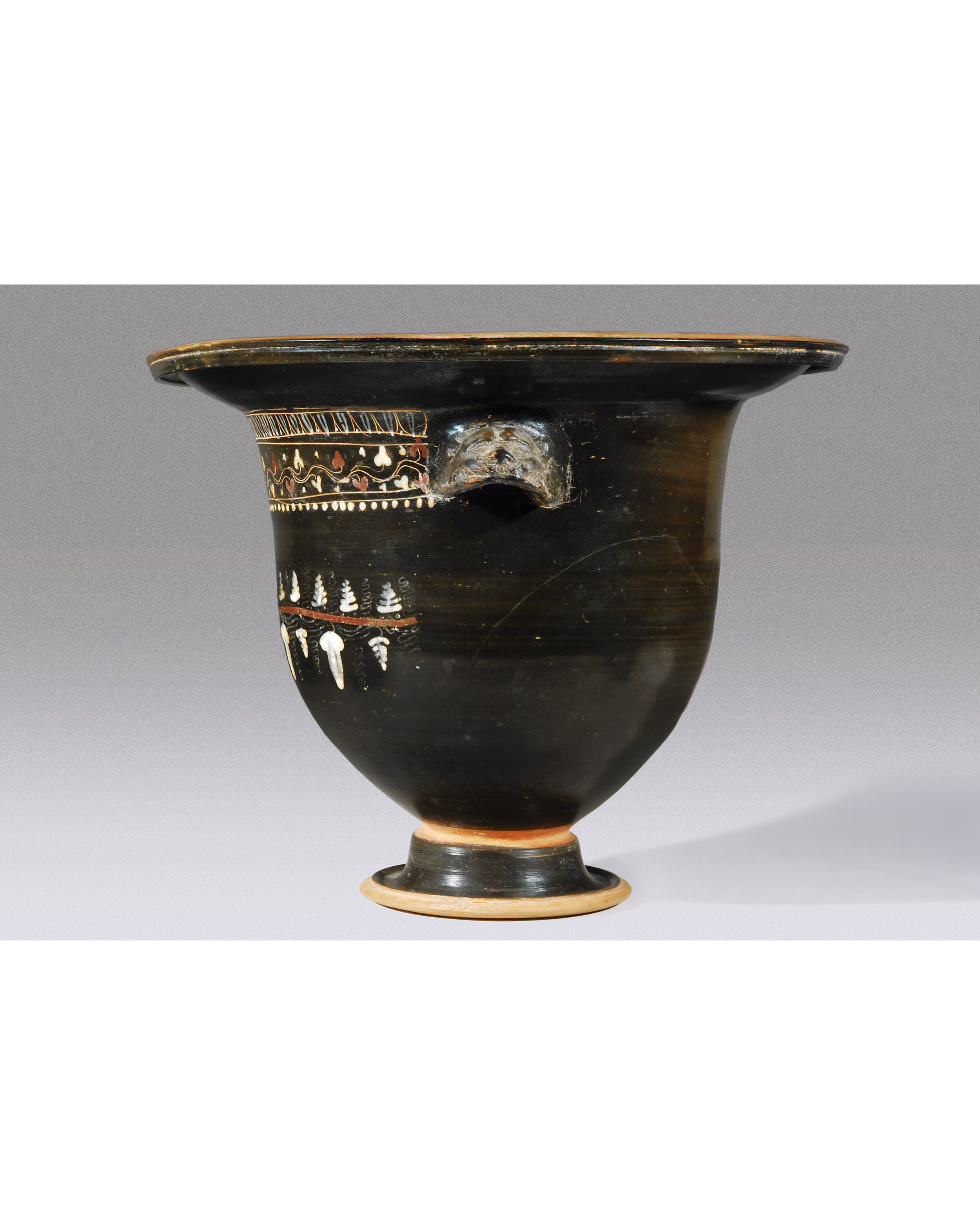Ancient Hellenistic Greek Gold Hoop Earrings with Maenads
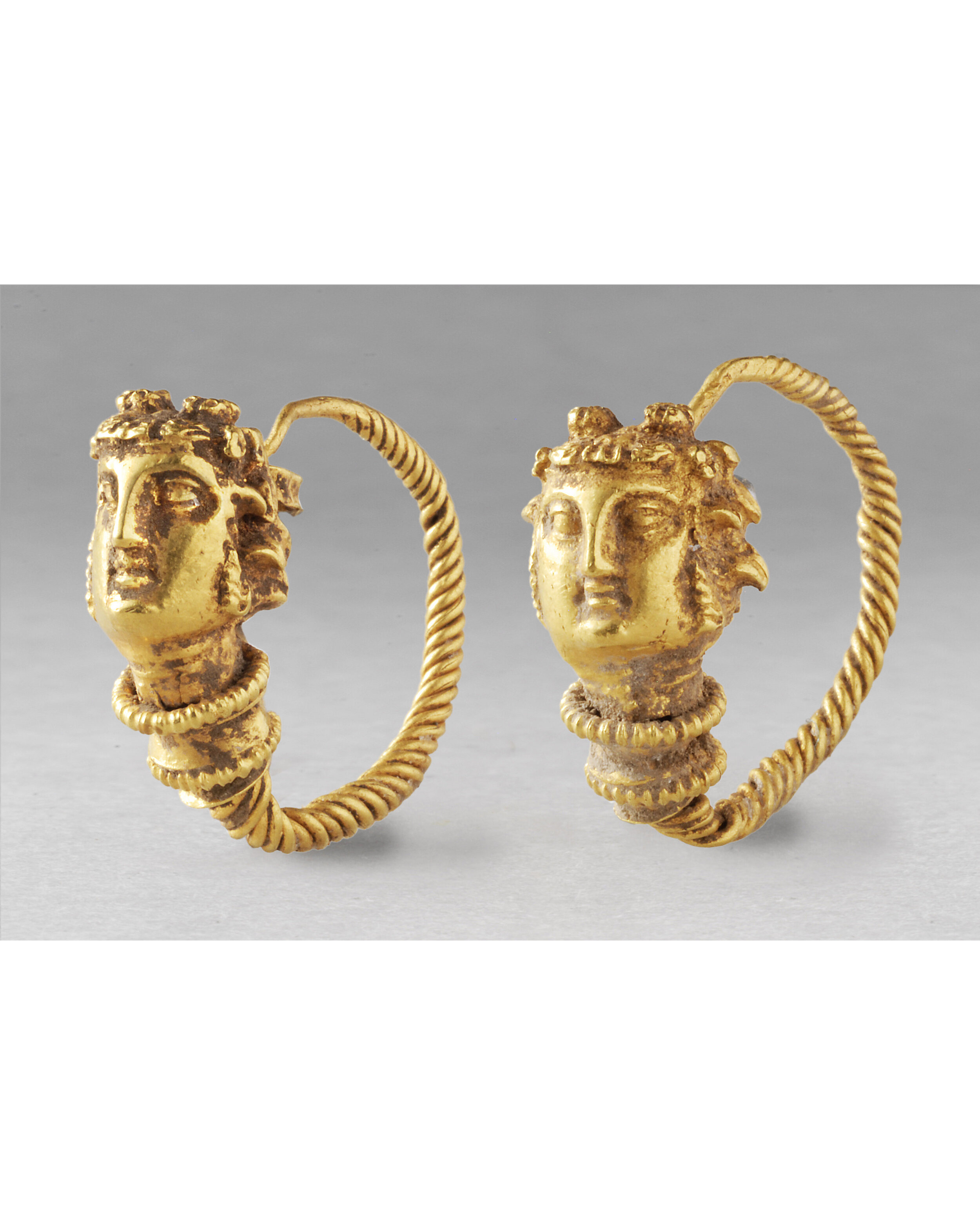




Ancient Hellenistic Greek Gold Hoop Earrings with Maenads
Greek, Hellenistic, 3rd – 2nd century B.C.
Gold
D: 2.80 cm (D: 1.1 in)
Serial: 11443
These two jewels, entirely made of gold, are practically identical and in all likelihood make up a pair. They consist of a hoop around which many wires have been wound, creating a twisted effect: on one end, the wires were soldered together to form a point, while the other end is modeled in the shape of a female head. They are hollowed and, most probably, made from two halves of sheet gold. The transition between the two elements is covered by a sort of thick “collar” bordered with two rows of small beads. The small ring soldered behind each of the heads is part of the closing mechanism for the earrings.
The presence of the crowns of ivy leaves and clusters of berries that encircle the heads of the young women allows for their identification: most probably, they are two maenads, female persons, who, as part of the Dionysiac entourage, accompany the god of wine and his satyrs in their frenzied dancing.
Despite the miniature size of these jewels, one can appreciate the sculptural qualities of their faces, the precise rendering of the wreaths as well as the details and volumes of the maenads’ hair, which includes incised locks and long, twisting curls.
In the Hellenistic world and later into the Roman period, this subject was particularly prized for funerary jewelry because of the chthonic character strongly associated with Dionysus: indeed, the god of the vine was perceived also as a god of fertility. This is due to the fact that he was supposed to die every year and pass part of his life in the underworld before being reborn in the spring. Among similar subjects frequently used by contemporary jewelers to ornament their treasures, one can also point out various animal head (protomes), such as lions, gazelles, calves, bulls, or rams.
CONDITION
Complete; no restoration; surface covered with deposits; tiny cracks on the neck of one head; the back of one head is depressed.
PROVENANCE
German art market, Munich, 2000.
BIBLIOGRAPHY
DEPPERT-LIPPITZ B., Ancient gold jewelry at the Dallas Museum of Art, Dallas, 1996, pp. 72, 134, no. 53.
